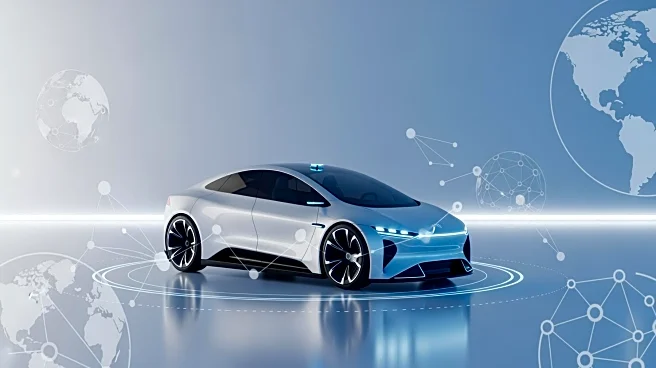What's Happening?
Lyft CEO David Risher recently discussed the future of self-driving vehicles in a conversation with Arjun Kharpal. Risher emphasized that robotaxis are set to become a global phenomenon, highlighting Lyft's strategic moves in the European market and its
acquisition of Freenow. The discussion reflects Lyft's commitment to expanding its autonomous vehicle technology and integrating it into various markets worldwide. Risher's insights suggest that the company is positioning itself to be a leader in the self-driving vehicle industry, which is expected to revolutionize transportation by offering more efficient and cost-effective solutions.
Why It's Important?
The advancement of self-driving vehicles has significant implications for the transportation industry, potentially reducing costs and increasing accessibility for consumers. Lyft's focus on expanding its autonomous vehicle technology could lead to increased competition in the market, driving innovation and potentially lowering prices for consumers. Additionally, the global adoption of self-driving vehicles could have environmental benefits by reducing emissions and improving traffic efficiency. As Lyft continues to invest in this technology, it may influence public policy and regulatory frameworks surrounding autonomous vehicles, shaping the future of transportation.
What's Next?
Lyft's acquisition of Freenow and its expansion into the European market suggest that the company is preparing for broader deployment of its self-driving technology. This move may prompt other companies to accelerate their own autonomous vehicle initiatives, leading to increased competition and collaboration in the industry. Regulatory bodies may need to address safety and ethical concerns associated with self-driving vehicles, potentially influencing the pace of adoption. As Lyft continues to develop its technology, stakeholders will be watching closely to see how these advancements impact the transportation landscape.















